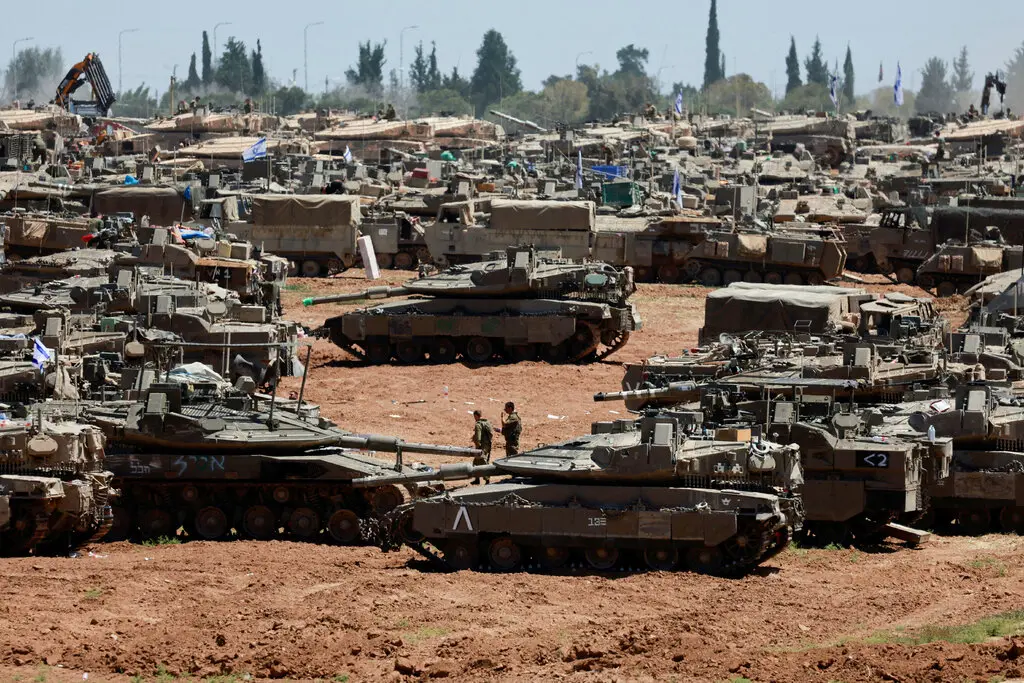
In a significant move that underscores the limits of his patience, President Biden has decided to pause the delivery of 3,500 bombs to Israel. This decision marks a dramatic shift in the long-standing relationship between the United States and Israel, one of the closest security partnerships globally. While President Biden emphasized that his support for Israel remains “ironclad,” he chose to use his authority as Israel’s chief arms supplier to convey his discontent over Israeli plans for an invasion of Rafah, a southern Gaza city where many Palestinians have sought refuge.
The decision to halt the bomb delivery represents a clear signal from President Biden that there are consequences for actions that could lead to widespread civilian casualties.
The decision to halt the bomb delivery represents a clear signal from President Biden that there are consequences for actions that could lead to widespread civilian casualties. His objection to the invasion of Rafah stems from the fear that American bombs could be used in urban neighborhoods, resulting in civilian casualties. President Biden’s stance reflects a recognition of the impact of US weapons in conflict zones and a willingness to hold allies accountable for their actions.
Israeli plans to storm Rafah have been a point of contention between the United States and Israel for some time. While the Biden administration opposes such an operation, Israel maintains that it is necessary to eliminate Hamas, which it blames for a terrorist attack that killed 1,200 people in October. Despite US objections, Israeli officials were reportedly close to a decision to move against Rafah, prompting President Biden’s decision to halt the bomb delivery.
The pause in bomb delivery is a strategic move by President Biden to pressure Prime Minister Benjamin Netanyahu to reconsider the planned invasion of Rafah. By withholding weapons, President Biden is using his leverage to influence Israeli decision-making and prevent further escalation of violence. The administration hopes that this selective pause will encourage Israel to seek alternative solutions to the conflict in Gaza.
The relationship between the United States and Israel has been marked by moments of tension and disagreement, despite being one of the closest security partnerships in the world. Past US presidents have withheld aid to Israel to express displeasure or influence policy decisions. President Biden’s decision to pause the bomb delivery is consistent with this history but represents a significant step in using arms sales as a means of exerting pressure on Israel.
Also Read: America’s moral power — indispensability and indiscretion
Despite Israel’s insistence on the necessity of a potential invasion of Rafah to eliminate Hamas, critics argue that such a move would exacerbate the humanitarian crisis in Gaza, where residents already face severe shortages of food, medicine, and other essential supplies. The potential for widespread civilian casualties in densely populated areas raises serious ethical concerns, particularly regarding the use of American-supplied weapons in urban warfare. Critics also point out the disproportionate use of force by Israel in response to Hamas attacks, highlighting the need for a more balanced and measured approach to addressing the conflict.
The future of the US-Israel relationship will depend on how both sides navigate this current impasse.
While President Biden’s decision has been met with criticism from some Republicans, who argue that Israel should be given whatever it needs to defend itself, it has been supported by Democrats and progressives who have been pressing for a more restrained approach to arms sales to Israel. Senator Bernie Sanders, for example, has praised President Biden’s decision but called for further action to curtail Israel’s military actions in Gaza.
The future of the US-Israel relationship will depend on how both sides navigate this current impasse. If Prime Minister Netanyahu defers to President Biden’s judgment and avoids a significant escalation in Rafah, it may only be a temporary setback. However, if the standoff continues, it could lead to a broader cutoff of weapons, which would have a more lasting impact on the relationship.
President Biden’s decision demonstrates the willingness of the Biden administration to use its leverage to influence Israeli decision-making and prevent further escalation of violence in Gaza. The outcome of this episode will have implications for the future of the US-Israel relationship and the broader Middle East region.
The opinions shared in this article reflect the author’s personal views and do not necessarily align with the institution’s official stance.



















Leave a Reply